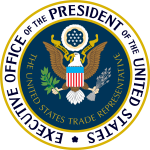 On July 3, the USTR announced that it has proposed a new provision for the secret text of the Trans Pacific Partnership on limitations and exceptions to copyright. In a blog post, the provision as is described as “consistent with the internationally-recognized ‘3-step test,’ that will obligate Parties to seek to achieve an appropriate balance in their copyright systems in providing copyright exceptions and limitations for purposes such as criticism, comment, news reporting, teaching, scholarship, and research.These principles are critical aspects of the U.S. copyright system, and appear in both our law and jurisprudence. The balance sought by the U.S. TPP proposal recognizes and promotes respect for the important interests of individuals, businesses, and institutions who rely on appropriate exceptions and limitations in the TPP region.”
On July 3, the USTR announced that it has proposed a new provision for the secret text of the Trans Pacific Partnership on limitations and exceptions to copyright. In a blog post, the provision as is described as “consistent with the internationally-recognized ‘3-step test,’ that will obligate Parties to seek to achieve an appropriate balance in their copyright systems in providing copyright exceptions and limitations for purposes such as criticism, comment, news reporting, teaching, scholarship, and research.These principles are critical aspects of the U.S. copyright system, and appear in both our law and jurisprudence. The balance sought by the U.S. TPP proposal recognizes and promotes respect for the important interests of individuals, businesses, and institutions who rely on appropriate exceptions and limitations in the TPP region.”
Below is a sample of the statements made by civil society and industry groups.
Joint Statement from EFF, Public Knowledge, KEI, and Public Citizen.
We are concerned that, depending on the actual text and its scope and interpretation, the provision in the TPP will restrict fair use and other copyright exceptions and limitations crucial for the progress and access of culture, science, education, and innovation. In a 2000 dispute [pdf] involving an exception to copyright for the United States, the WTO has defined the 3-step test narrowly and restrictively, making it difficult to justify a statutory limitation or exception to the exclusive rights of copyright, in the areas where the WTO says the test applies. The risk is that (a) the 3-step test is extended to another fora, and (b) more importantly to exceptions now outside of the 3-step test.
US industries dependent on fair use exceptions represent 1/6 of our GDP and one in eight jobs. Putting language protecting fair use into future trade agreements would grow this sector and make it possible for this sector to expand to other markets without dramatically changing how they operate. This is the first time the US government has committed to export the “balancing” exceptions and provisions of US law, not just the IP protections of US law. Exceptions like fair use are essential components of IP law and we commend this initiative.
KEI’s concern is that if the 3-step test is introduced, at a minimum it just gives right holders two chances to knock something out (once at WTO, and once at TPPA). But it could be worse, if this is designed to apply to the many areas of the Berne and Rome conventions that are not now subject to the three step test.
Rashmi Rangnath, Public Knowledge.
PK and others have argued for a long time that international agreements, including the proposed Transpacific Partnership Agreement (TPP) must include mandatory provisions on limitations and exceptions. These provisions must promote fair use of works and also generally reflect the robust user rights that that US copyright system seeks to promote. As an initial matter, the proposed provision (or provisions) must not be limited to the language articulated by the USTR but must permit extension of newer limitations and exceptions that are suitable to the digital environment and to local conditions in the TPP countries… We look forward to seeing the actual language and providing our feedback on it.
It’s probably a wise concession on the part of the USA in the face of the inevitable realization that large and liberal exceptions are important to education and innovation and always have been and always will be. If countries such as Canada insist on hobbling its own innovators and educators with restrictive and expensive regimes like that of Access Copyright, the USA probably wants to ensure that such short sighted thinking does not hurt the global interests of US corporations operating abroad.




